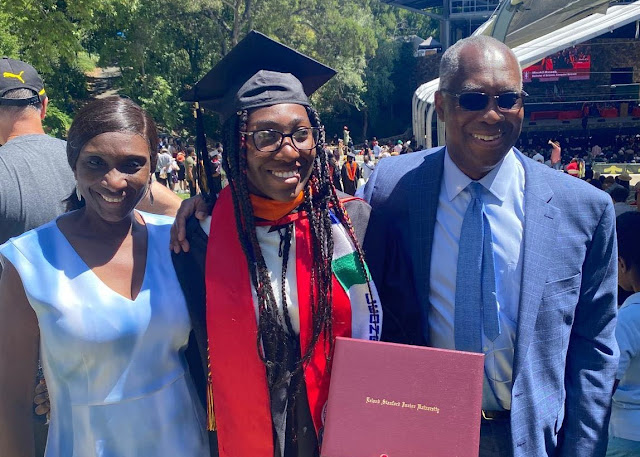Vitabubooks Interview | Chika Unigwe
A tale of choices, displacement and courage, suffused with the richness of the oral story-telling tradition and set against the backdrop of the Antwerp prostitute underworld.
The blurb grabbed me several months ago when I first came across the book On Black Sisters Street. Perhaps because I am an African migrant worker, I get drawn to tales of displacement; of root shock among continental Africans--people of all creeds and from all walks of life. I found On Black Sisters Street essentially a tough story of people, of women on the so-called 'margins of society.'
In a time when human trafficking, modern-day slavery, forced labor and debt bondage are such hot button issues, more and more these days we read about or watch television documentaries on programs that are trying to raise awareness--how many men, women and children are trafficked for the purpose of commercial sexual exploitation, where they come from, countries they transit in and where they end up. So there were all these ideas and facts floating in my head as I thought about questions for the e-mail interview with On Black Sister Street's author, Chika Unigwe.
Reading through scores of the book reviews, I was struck by Fernanda Eberstadt's headline Tales From the Global Sex Trade. My search also threw Leora Fridman's interview with Tracy Kidder at me. Both articles kind of crystallized my ideas and helped me find where I wanted to go.
Vitabubooks: In Lynette Holloway's Interview With an Author: Chika Unigwe Probes the Gnarly Underworld of African Women Working as Prostitutes in Europe you said:
I went to the women because I had no idea about their lives as prostitutes, and because I wanted to know what it felt like to walk those cobbled streets of the red-light district. I wanted to feel what it was like as a woman to be on that street, and to be looked at as a possible worker. It was only by doing that that I could somehow, in a very small way, inhabit the skin of my characters and write them truthfully. It was awkward at the beginning. Would I recommend it to others? I think as long as one is comfortable doing it, that sort of research helps more than any literature.
Your research is almost like undercover journalism. In a way, you 'infiltrated' the world of immigrant sex workers who risk deportation at any moment and played a part. Was it ever a dangerous disguise?
Chika Unigwe: It might have been but it never felt like it. Or rather I never allowed myself to think of it because it would have crippled me. The women were generally very nice to me, and for that I am very grateful.
Vitabubooks: Do you see yourself working for social change and human rights as a writer?
Chika: I see myself writing about things I am passionate about in the best possible way I can. I am first and foremost a story-teller. I strive to tell whatever story I tell, well. Of course in the ways that some books have touched me and caused me to reflect on life and its big issues, I hope that mine do that to someone else.
Vitabubooks: Here's what Belinda Otas wrote about your book:
It is my personal opinion that every girl child aged 13 and upwards should have a copy of OBSS, especially in Nigeria. In fact, the Nigerian government should make OBSS a compulsory reading for all secondary school and university students. ...OBSS will make you sit upright and think, the next time you walk past a prostitute on the street. Yes, it is that good. If there is a book you must read in your life time, OBSS is one of them.
Are there particular ways in which you want people to empathize with characters in your books?
Chika: I want them to empathize with them as fellow human beings. That is our common denominator after all.
Vitabubooks: Can writers promote causes for social change? Should they?
Chika: Writers should write. Readers take different things away from a book. I believe that If you write well about an issue you are passionate about, it shows. Our commitment is to write truthfully and well. Everybody has at least one book that changed their lives. Usually it is a well written book.




Comments
Post a Comment